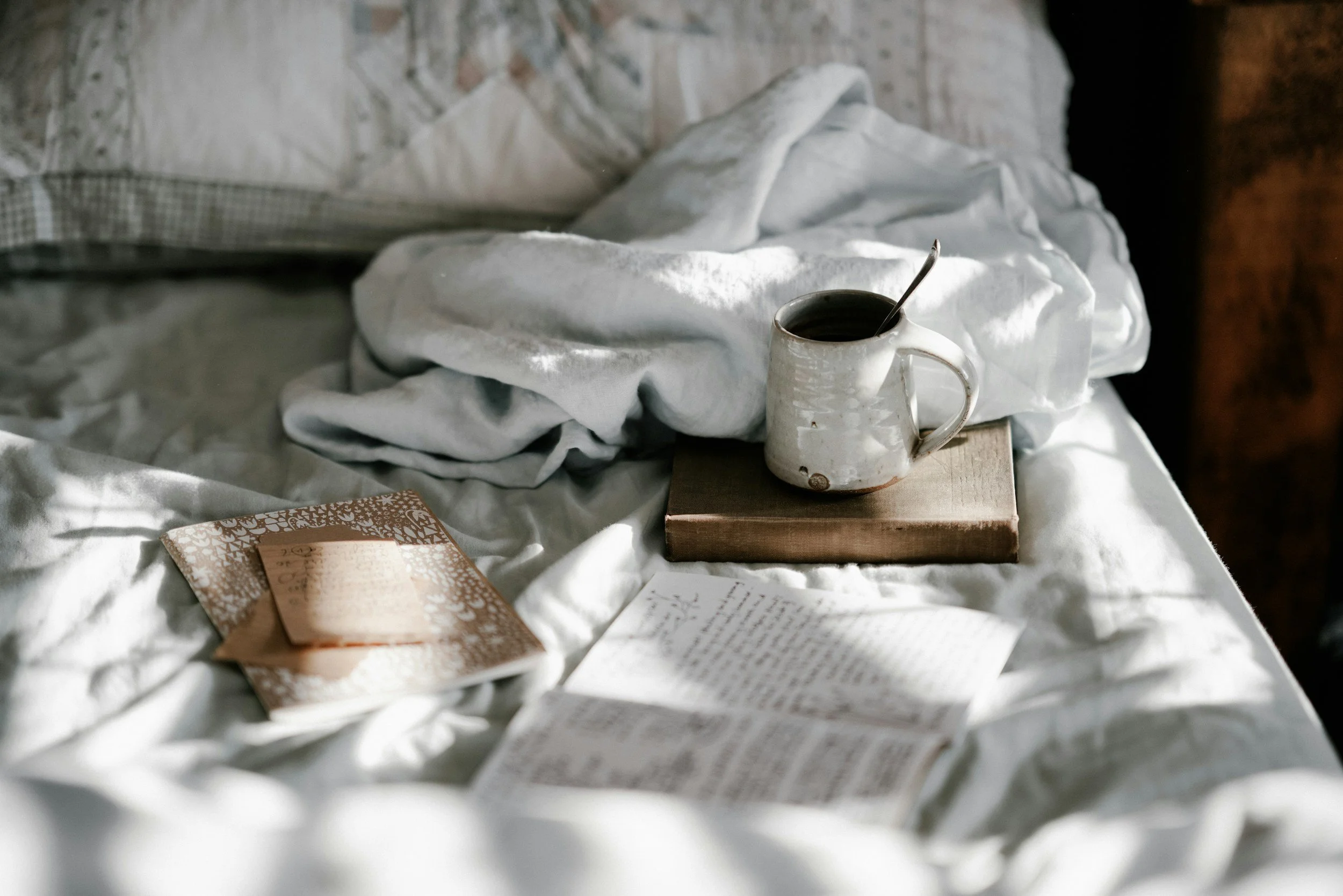How Improving My Sleep Hygiene Balanced My Mood and Hormones
What happened when I finally treated sleep as a ritual, not just a routine.
There’s a version of me that used to feel proud of running on low sleep. I didn’t realize it at the time, but I’d equated exhaustion with being “dedicated.” It was easy to rationalize: I’m building something, I’m helping people at work, I need to go to that dinner, I’ll rest when I can. I wore fatigue like a badge of honor and brushed off the emotional rollercoaster I was riding. Mood swings? Just hormones. Cravings? Just stress. The full-body irritability? I thought that was just… part of being a woman.
But underneath it all, my nervous system was begging for consistency. What I needed wasn’t another supplement or green smoothie. I needed to learn how to rest.
Getting 8 Hours of Sleep was the Missing Piece I Didn’t Want to Admit
Sleep was always last on my list. I thought: I eat pretty well, I move my body, I drink water. Isn’t that enough?
It wasn’t. Because while I was trying to heal my body during the day, I was undoing that healing every night, by not giving my body the conditions it needed to restore, or waking up in the middle of night.
And here's the thing: sleep isn't passive. It’s not just a break from your to-do list. It’s when your hormones recalibrate, your cells repair, your blood sugar stabilizes, and your nervous system softens. It’s when inflammation lowers and your brain gets to actually exhale
Sleep is literally how your body resets every night so you can wake up as yourself again.
My Sleep Hygiene Was… Barely There
I used to fall asleep with the TV or Music on. I’d scroll in bed. I’d eat dinner late, then snack right before sleep. I’d crash hard, wake up groggy, and repeat the cycle, telling myself I just wasn’t “a morning person.”
When I started making small, consistent changes to my bedtime habits not perfect, just supportive shifts…I noticed a major shift I wasn’t expecting: My moods evened out. I stopped waking up in the middle of the night. My period symptoms softened. I stopped feeling like I was walking around so stressed.
Here’s what actually helped:
What My Real-Life Sleep Hygiene Looks Like Now
1. Evenings are a ritual, not a task
I stopped trying to “check off” a routine and focused instead on feeling calm.
That looked like:
Turning off the TV, any harsh lights and switching to lamps or candles after 8pm
Using an alarm clock like the Hatch to cue myself for bedtime with calming sounds and lights
Using lavender or vanilla essential oils in a diffuser or spraying my bedding with scented mist
Saying an affirmation out loud like: “I’m proud of how I showed up today.”
On the nights I was anxious? I didn’t force myself into stillness. I tidied up my space . I read something comforting. I talked to a friend. I used meditation as a tool. I gave myself options for winding down.
2. Light is my hormonal co-pilot
In the morning, I started stepping outside—even just for 5 minutes of sunlight. No sunglasses. No phone. Just me, the sun, and whatever birds were screaming. That light helps trigger melatonin production later at night, which was a game-changer. I also reduced screen time after 9pm and wore blue-light blockers if I had to be online.
3. Timing my food intake better helps more than I expected
If I ate late or had too much sugar before bed, my sleep was choppy. So I started eating dinner a bit earlier—light soups, grounding meals. And if I was still hungry later, I’d have something small and blood-sugar friendly: a banana with almond butter or a spoonful of chia pudding
What Changed: Mind, Body, and Mood
The physical stuff happened first—I woke up clearer, with less puffiness and brain fog.
But the biggest shift? I felt emotionally regulated.
I didn’t react as quickly.
I didn’t cry over random things as often (unless I needed to).
I wasn’t riding the blood sugar–cortisol–caffeine wave just to get through the day.
I was living in a more rested body, which made every choice easier. Food choices, relationship choices, work boundaries—everything felt less dramatic and more doable.
Sleep Helped Me Feel Safe in My Body Again
What I learned is that most of us aren’t “lazy.” We’re not undisciplined. We’re just tired.
Deep down tired. Nervous-system-wired-tired. Too-many-tabs-open-in-our-brain tired.
And we’re trying to fix it with surface-level strategies because no one taught us how to rest with intention.
Sleep is where the deepest healing happens.
But only when we make space for it.
If You’re Still in the Thick of It…
Here’s what I would say to the version of me who was staying up late and waking up drained:
You don’t need a perfect nighttime routine. You need one moment that feels safe.
Rest isn’t something to earn. It’s something to receive.
You’re allowed to slow down before your body forces you to.
A Gentle Next Step
If your energy is all over the place… if your cycle feels unpredictable… if your body feels inflamed or wired or just off—start with your sleep.
Here are three small ways to shift:
Turn off overhead lights after dinner. Let your body feel the rhythm of winding down.
Step outside in the morning. Let your body remember it’s part of the earth, not just a schedule.
Choose a bedtime buffer. No screens. Just one small ritual: a stretch, a tea, a sentence of gratitude.
And if you need support…
————————————————————-
Ready to Feel More Rested, Nourished, and in Rhythm?
This is the kind of work I do with my clients. Not just sleep—but energy, blood sugar, hormone health, emotional cycles—all of it.
In 1:1 holistic coaching, we co-create gentle strategies that honor your rhythms, align with your life, and support healing that actually feels good.
If you're craving more calm, more clarity, more energy that lasts—
👉 Click here to learn more and take the first (soft) step toward a more nourished you.

